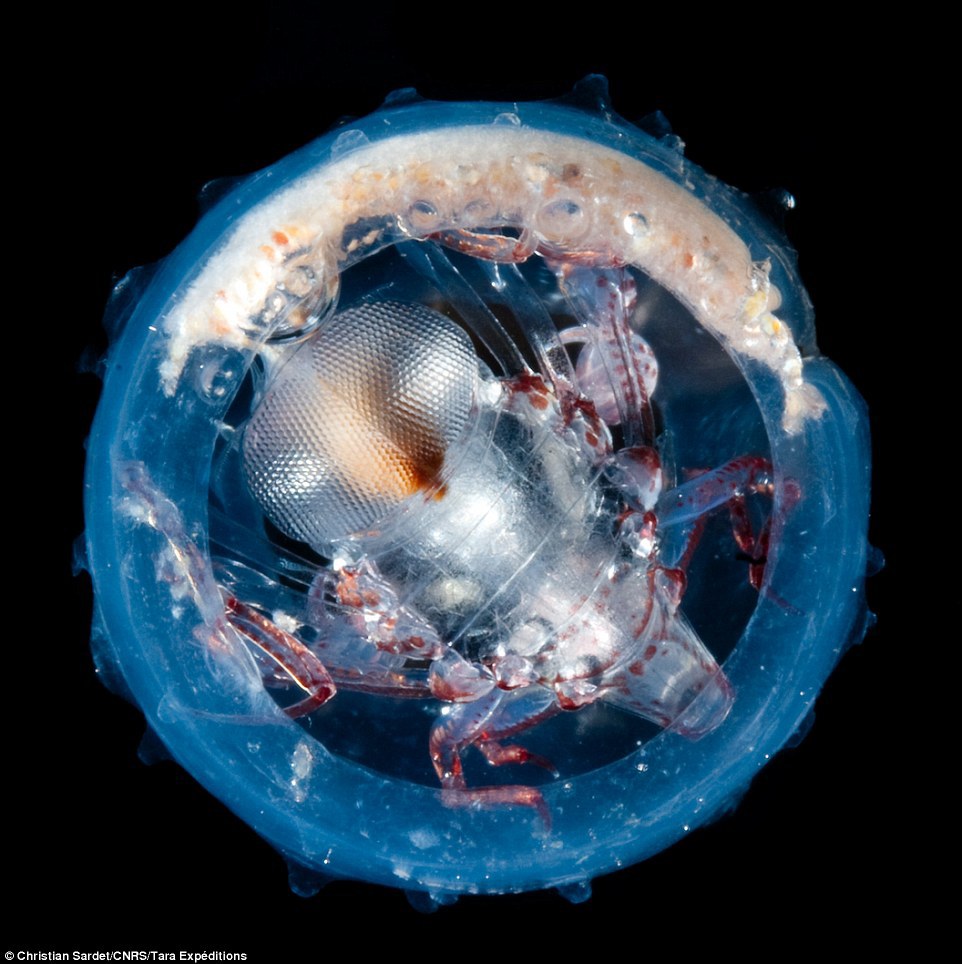Scientists have discovered that plankton produces 50% of all oxygen on the planet.

Amphipod of the genus Fronima is one of the inhabitants of the ocean
Biologists and oceanologists have published the results of the most extensive and rigorous study of miniature marine life in the entire scientific history. The 3.5-year-long mission took place on the ship Tara. During this time, researchers traveled 140,000 kilometers, and took 35,000 samples of plankton in 210 different places in the oceans. One of the interesting results of the study was the role of plankton in supplying the planet with oxygen. The article was published in the journal Science.

During the trip, they had to spend 10 days chained into Arctic ice, to overcome storms in the Mediterranean Sea and the Strait of Magellan, and to pass the Gulf of Aden under the protection of the ships of the French fleet protecting them from pirates. The main goal of the study was to study the distribution of various types of organisms, their interaction with each other and the transfer of genetic information. About 40 million plankton genes, previously unknown, were found and recorded.
')

Research vessel route
Studying a variety of small flora and fauna (plankton includes microscopic plants and animals, fish eggs, bacteria, viruses and other microorganisms), scientists have determined that this is not only the beginning of the food chain for larger animals.

Tara
“Plankton is more than just food for whales,” says Chris Bowler, director of research at the French National Center for Scientific Research. “Being tiny, these organisms are the most important part of the life support system on Earth.” They are the basis of the food chain, and in addition, they produce 50% of oxygen through photosynthesis. ” In addition, plankton absorbs carbon dioxide and turns it into organic carbon.

And why only the network does not fall
According to the researchers, each mouthful of seawater contains about 200 million viruses, the main prey of which are 20 million bacteria that can be found there. More scientists are very interested in the fact that the diversity of plankton is much greater than previously thought, and the diversity of viruses at the same time was less than expected.

A variety of baby
It has been established that the interaction of different types of plankton is regulated by the water temperature, and when two currents of different temperatures meet, the plankton colonies do not mix with each other. It was also possible to prove the earlier hypothesis that viruses appear in a limited number of places in the ocean, and then they are spread by ocean currents.

Trapping plankton / Reuters
Understanding the processes occurring in the world of plankton will help, in particular, to refine predictive models of climate change.
Source: https://habr.com/ru/post/365561/
All Articles